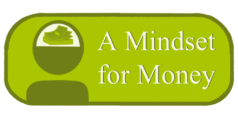
What 7 Habits?
Since my mission is to help you build a better mindset for money, to aid that mission, I will review some books worth reading. There are many authors who have found success because they have written something that readers have found valuable. One of these authors is Stephen R. Covey, in his book, The 7 Habits of Highly Effective People.
The 7 Habits that he covers in this book go beyond just making money. However, the evidence for personal and organizational effectiveness has aided many to more financial stability.
If you dare to read this book and highlight the concepts along with repeated application of the principles, you can make the needed changes in your personal habits to become more effective in every role in your life.
Make Changes to See Changes
There is a fundamental reason to read this book. We need to recognize that for us to change a situation we first must change ourselves. This is not a new concept. Benjamin Franklin referred to it in his Autobiography. Stephen Covey does discuss the transition of the concept and its development over time.
It is important to give ourselves a basis for how we think and view the world. He notes, “What we are communicates far more eloquently than anything we say or do.”
Principles are important to learn. They “are guidelines for human conduct that are proven to have enduring, permanent value. They are fundamental.”
He offers a hint from Aristotle about how to make good changes, “We are what we repeatedly do. Excellence, then, is not an act, but a habit.”
Define Habits
Stephen defines habit as “the intersection of knowledge, skill, and desire…Creating a habit requires work in all three dimensions.”
“Knowledge is the what to do and the why. Skill is the how to do. And desire is the motivation, the want to do.”
He notes that this process of building good habits reflects your maturity, especially since it can sometimes seem a little painful.
Transition for Perspective
When you see Mr. Covey’s chart related to the 7 Habits, you will observe the division between Dependence, Independence, and Interdependence. They chart the transition of your understanding.
He notes this as both a learning and maturing process. The hope is that you can build some empathy for others to give you a perspective on life beyond yourself.
He points out that you must experience “private victories” before you can experience “public victories”.
“The P/PC Balance”
“Effectiveness lies in the balance—what I call P/PC Balance. P stands for production of desired results. PC stands for production capability, the ability or asset that produces.” As an example he referred to the Golden Egg Story.
He noted three kinds of assets:
- Physical asset
- Financial asset
- Human asset
As an example of the PC principle, as an employer, he says, “To always treat your employees exactly as you want them to treat your best customer.” That sounds like a Win/Win to me!
A Brief Picture
I cannot do justice to the message that Stephen R. Covey conveys in his book, The 7 Habits of Highly Effective People, in this blog post. However, I hope to reflect on enough of his message to pique your interest in reading the book.
He is often quoted. In fact, I have quoted his chart on The Time Management Matrix. This is a great help for giving value to items on your To Do List. Of course, that is under Habit 3 “Put First Things First”.
The first three habits relate to your “Private Victory”. Those Habits are:
- Be Proactive
- Begin with the End in Mind
- Put First Things First
Under “Be Proactive”, he discusses the differences of being reactive versus being proactive. This relates to our freedom of choice between stimulus and response.
Under “Begin with the End in Mind”, he notes that “all things are created twice, mentally, then, physically.” Here he discusses how to build a personal mission statement to give yourself focus and values to give yourself direction. This can become the source of your “security, guidance, wisdom, and power.”
Under “Put First Things First”, he discusses “Principles of Personal Management”. To qualify, he notes, “Manage ourselves, not time’.
To add to this perspective, he quotes Peter Drucker, who was a business management expert, “effective people are not problem-minded; they’re opportunity-minded. They feed opportunities and starve problems. They think preventatively.”
Mr. Covey adds more perspective. Read to learn more about building “effective relationships”.
More Habits to Build Success
Habit 4 is “Think Win/Win”, which is the best of six paradigms of human interaction. “It’s not your way or my way; it’s a better way, a higher way.”
Habit 5 is “Seek First to Understand Then to Be Understood”. Stephen notes, “Communication is the most important skill in life.”
Habit 6 is “Synergize”. Synergy means “that the whole is greater than the sum of the parts.” He brings the essence of how the first five habits blend to a greater benefit.
Habit 7 is “Sharpen the Saw”. “Principles of Balanced Self-Renewal.” This habit makes all the rest possible. There are four dimensions to this habit, physical, spiritual, mental, and social/emotional.
Stephen, as I do, encourages the importance of reading. He suggests a goal of reading a book per month. He notes, “The person who doesn’t read is no better than the person who can’t read.”
In support of why I suggest reading this book to help you build a better mindset for money, he says, “your economic security does not lie in your job; it lies in your own power to produce—to think, to learn, to create, to adapt…not having wealth; having the power to produce wealth. It’s intrinsic.”
A Quote to Close
Stephen Covey took over 300 pages to explain the concepts included in The 7 Habits of Highley Effective People. And not once did he say making changes in your habits would be easy. He did say that it would be worth the effort and that the process might take some time. However, he did offer a way for you to make better use of your time to speed up that process.
Near the end of the book, he quotes Ralph Waldo Emerson, whose insights are respected and often quoted. Mr. Emerson said, “That which we persist in doing becomes easier—not that the nature of the task has changed, but our ability to do has increased.”
Please read this book to “sharpen your saw”!
